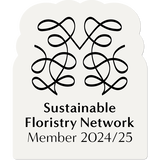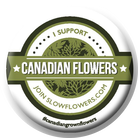|
Like the sustainable floristry industry, the global cut flower industry has a story to tell. Many people enjoy cut flowers for their beauty, symbolism and connection to nature, unaware of the harm done to the floral farm workers and the environment. These three floral experts are leaders in growing the sustainable floristry movement in North America: Rita Feldman, Founder, Sustainable Floristry Network Debra Prinzing, Founder, www.slowflowers.com, a searchable database for the Slow Flower Movement Becky Feasby, Creator, The Sustainable Flowers Project. Let's explore what the experts are saying and doing to grow the sustainable flower movement. The Global Floristry Industry Is Unsustainable"If there's one thing you could do to be more sustainable, it would be to get rid of floral foam completely, Feasby says." (https://montecristomagazine.com/design/floristry-industry-garbage-problem-canadian-sustainable-florists-trying-change) Becky Feasby, of Prairie Girl Flowers, created The Sustainable Flowers Project to educate on sustainable methods in the florists industry. Floral foam, a petrochemical product used to anchor flowers in arrangements, breaks down into micro-plastics that leach into the soil and ground water making its way into oceans. When in water, micro-plastics cause harm to aquatic life. Floral plastic wrap creates its own environmental problem. Floral single use plastics puts 100,000 tons in our global landfills each year. (https://montecristomagazine.com/design/floristry-industry-garbage-problem-canadian-sustainable-florists-trying-change) Imported cut flowers, largely from Columbia and Ecuador, make up about 80 per cent of all cut flowers sold in Canada and the US. Flowers are shipped from South America to North America in dedicated cargo jets, held in temperature controlled warehouses then delivered to retail outlets nationwide in refrigerated trucks. During peak demand, 30-40 cargo jets of flowers leave Bogotá for Miami — a day! (https://atmos.earth/cut-flowers-environmental-carbon-cost-facts/) Each year the global transportation of cut flowers contributes an estimated 360,000 metric tons of CO2 to global warming. (https://montecristomagazine.com/design/floristry-industry-garbage-problem-canadian-sustainable-florists-trying-change) Use of Toxic ChemicalsMany countries that grow flowers for the global export market lack laws to control pesticide use on flower fields. This results in serious harm to both the flower workers and the environment. "Workers are rarely trained on how to use these pesticides properly, resulting in multiple health problems and damage to local eco-systems. In particualar, pesticides pose a threat to water systems, as run-off from chemicals in growing fields often ends up in neighbouring waterways." (https://ethicalunicorn.com/2019/02/19/what-is-ethical-sustainable-floristry/) Local, Seasonal and Sustainable Floristry MovementRita Feldman, founded the Sustainable Floristry Network " out of ... frustration with a system that has lost connection with its roots in celebrating nature, beauty, and seasonality."(https://www.sustainablefloristry.org/about-sfn/the-team/) The Sustainable Floristry Network focus is on education. From the SFN website: "The Foundation in Sustainable Floristry has been developed for all skill levels, from beginners through to teachers. By the end of the course, students will have an understanding of how they can:
Debra Prinzing, a writer and journalist with a passion for local and seasonal flowers, launched a searchable database, slowflowers.com, as "a response to the disconnect between humans and flowers in the modern era ... Slow Flowers connects consumers with the source of their flowers, putting a human face of the flower farmer and floral designer behind each bouquet or centrepiece." (https://www.slowflowers.com/about-us.html) Debra Prinzing has authored numerous books, among them The 50 Mile Bouquet: Seasonal, Local and Sustainable Flowers (2012), and Slow Flowers: Four Seasons of Locally Grown Bouquets from the Garden, Meadow and Farm (2013). Debra Prinzing is a contributing editor to the Slow Flowers Journal and is nearing 600 episodes on her Slow Flower Podcast known as the "Voice of the Slow Flower Movement". Sustainable Floristry In CanadaBecky Feasby, of Prairie Girl Flowers in Calgary, is Canada's ambassador for the Global Sustainable Network and the Slow Flowers Movement. She created and runs The Sustainable Flowers Project, an "annual creative + educational workshop that celebrates sustainable floristry and our love of flowers". The goal of The Sustainable Flowers Project is to help educate flower lovers of the benefits and practices of sustainable floral design, bringing together international experts in the sustainable floristry field. The number of sustainable florists in Canada is growing as the environmental crisis deepens. It is time to develop a Canadian searchable database of sustainable floristry business by province. This will benefit flower lovers, florists and the environment. How We Support the Local, Seasonal and Sustainable FloristryWe started Foraged Florals for our love of flowers and to recover our health by being on the land. We care for the earth as much as you do. That's why we grow, harvest and design floral arrangements we can all feed good about. We commit to using sustainable floral practices, including no floral form and single use plastics. PermacultureWe grow flowers using permaculture practices we learned in Guatemala on farm stays. This method of farming allows the plants to capture carbon. Permaculture is the natural process of the forest to regenerate and to oxygenate. This builds healthy soil which grows resilient plants and allows breathtaking floral arrangements. Sourcing Local FlowersWe source our flowers from our own farm and local flower growers, Bar M Ranch and Roundway Farm in New Ross. Our round trip to collect flowers is 13.8 km. We have also invited local home gardeners to join our wedding flower registry. Traditionally in rural communities, young brides would be given wedding flowers by local gardeners. It's a beautiful, meaningful, and sustainable tradition worth reviving today. Creating a Sustainable Floristry Directory for Nova ScotiaWe know people protect the things they love. Our goal is for everyone to love and buy local and seasonal flowers and floral arrangements for weddings and events. To do that, people need to know who the sustainable florists are in their area. Solution — a sustainable floristry directory.
We would love to have your comments on how we can grow a sustainable floristry industry, and in particular a directory.
0 Comments
Leave a Reply. |
Written bySusan Larder Archives
January 2024
Categories |
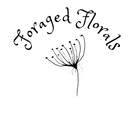
We do flower arrangements
by request. Call 902-209-3638 to place an order or to book a complimentary consultation for wedding flowers. 5491 Hwy 12, Harriston, Nova Scotia B0J 2M0. 902-209-3638 |
Support local, seasonal and sustainable
flower farmers. It is the future.. On our flower farm and studio, our methods of production and design already produce the lowest possible carbon footprint for a flower arrangement - grown outdoors, locally and seasonally with no chemical inputs. |
Our tiny flower farm is situated near Waqmiaq*, now New Ross, in the District of Sipekne'katik, in Mi'kma'ki on the unceded ancestral and territorial land and waters of the Mi'kmaw People. We aspire to be respectful stewards of their land, as the Mi'kmaq have been, and continue to be, for thousands of years. We are all Treaty People under the Peace and Friendship Treaties of 1725 and 1752.
*Waqmiaq is translated as "clean flowing water" on the Mi'kmaw Place Names website https://placenames.mapdev.ca. An audio of its pronunciation is also available. ©2024 Foraged Florals |

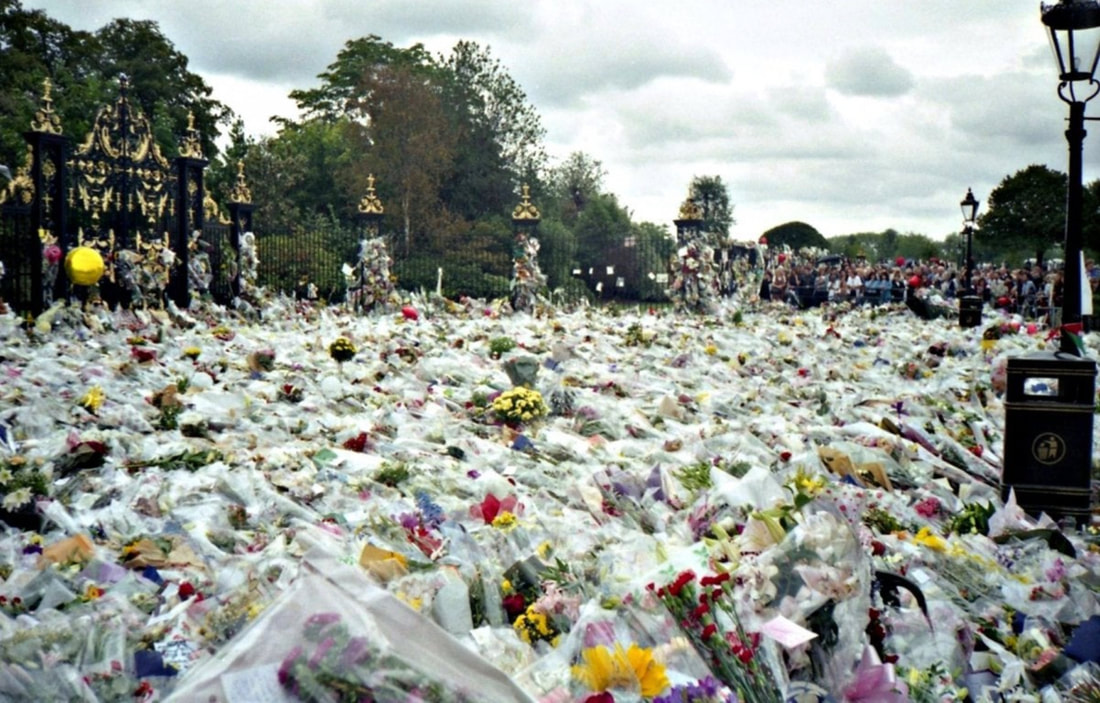
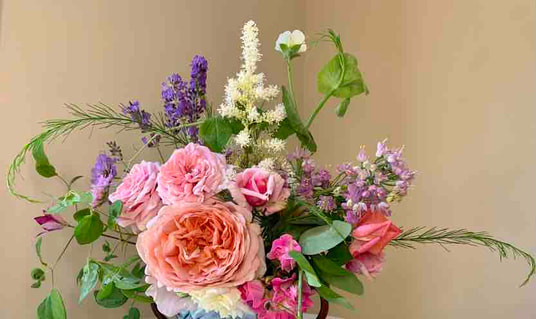
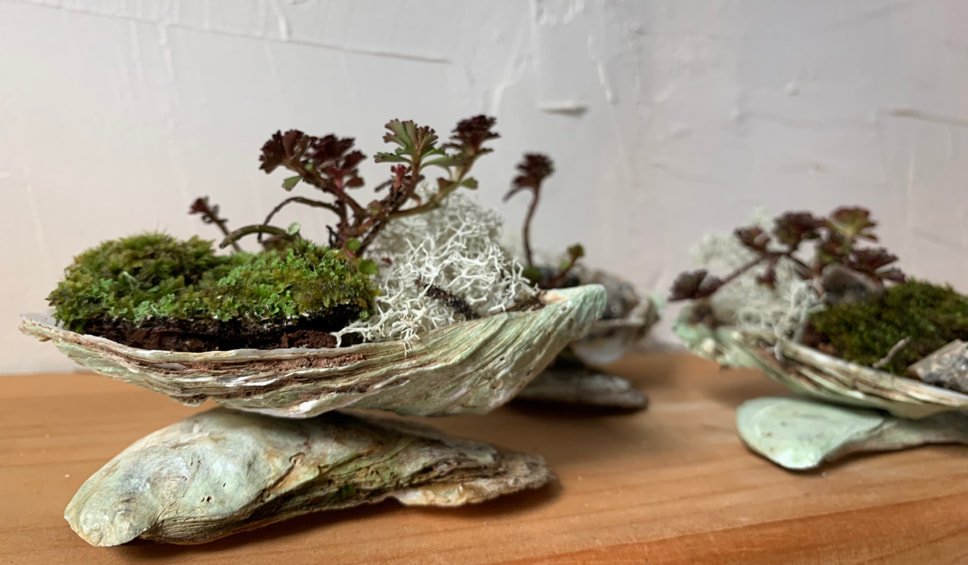
 RSS Feed
RSS Feed
